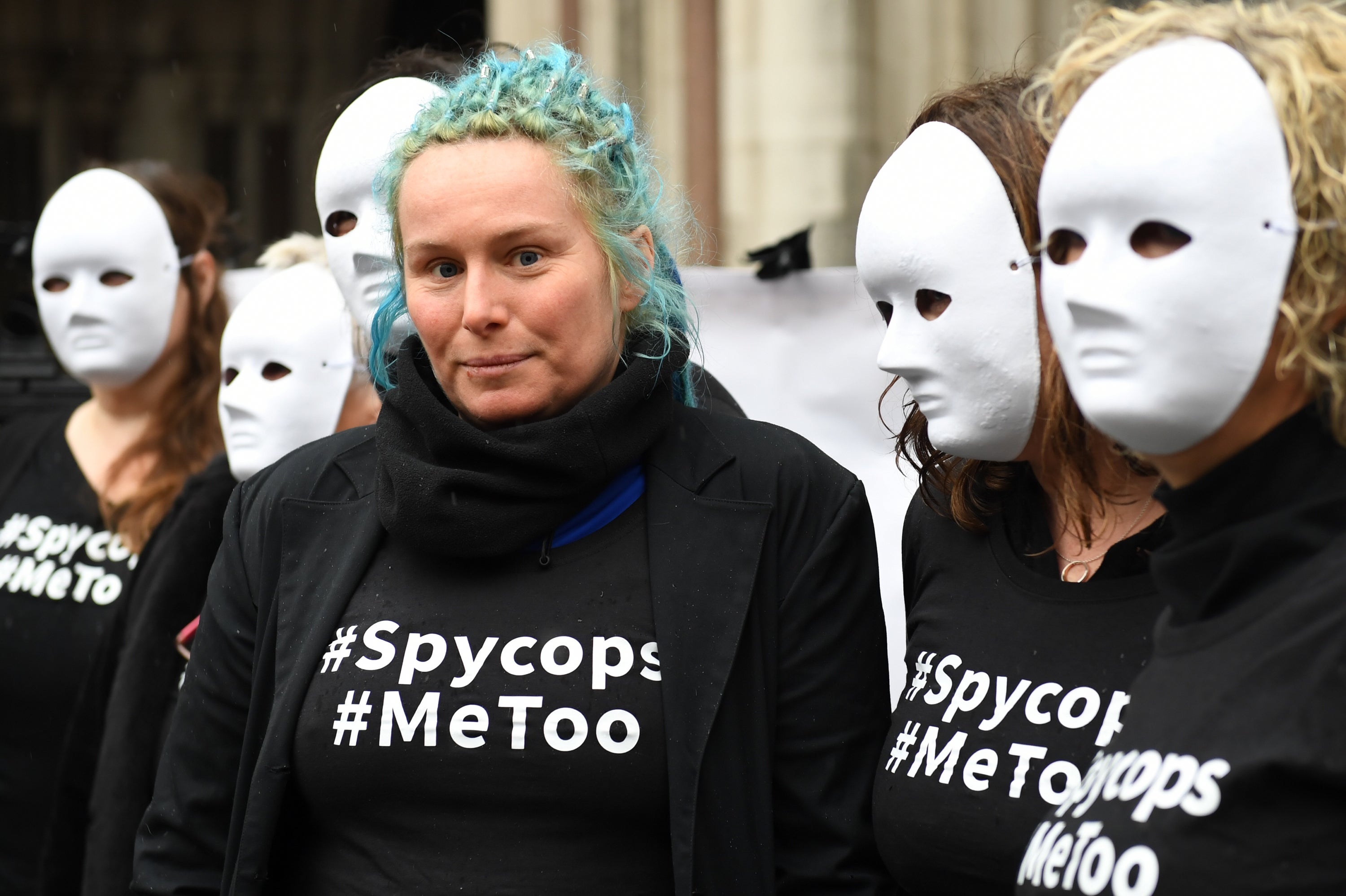Green activist tricked into sexual relationship with spy wins landmark case against Met Police
Tribunal concludes Kate Wilson’s human rights were breached

An environmental activist who was tricked into a sexual relationship with an undercover officer for nearly two years, has won a landmark tribunal case against the Metropolitan Police.
The Investigatory Powers Tribunal (IPT) concluded that Kate Wilson’s right to freedom from inhuman and degrading treatment, her right to privacy and right to freedom of expression had all been breached.
In a statement released following the ruling on Thursday, Ms Wilson said sexual predators within the police and attempts by officers to criminalise protesters “are both still very live issues today”.
In 2003 Ms Wilson, now 41, began a relationship with “Mark Stone” shortly after meeting him in the same year.
They quickly got swept up in a “whirlwind romance” but Ms Wilson was unaware that “Stone” was a serving undercover police officer for the Met.
The pair split up amicably in 2005 after Ms Wilson moved to Spain. Five years later in 2010, she found out that her former lover was a police officer called Mark Kennedy.
He had been sent to spy on activists as part of the Met’s National Public Order Intelligence Unit (NPIOU).
Mr Kennedy had sexual relationships with as many as 10 other women during his deployment, including one with a woman known only as “Lisa” which lasted for six years before she discovered a passport in his real name.
He was one of half a dozen undercover officers from the NPIOU or its “sister unit”, the Special Demonstration Squad (SDS), who Ms Wilson came into contact with between 1998 and 2010.
Ms Wilson brought legal action against the Met and the National Police Chiefs Council (NPCC) at the IPT for breaches of her human rights.
The Met and NPCC accepted Mr Kennedy’s actions amounted to a breach of those rights, but they denied that other officers, apart from Mr Kennedy and his cover officer, knew or suspected Ms Wilson was in a sexual relationship with him.
However, in its ruling the IPT found the Met’s claims undercover officers (UCOs) knew sexual relationships were banned were “materially undermined by the sheer frequency with which [Kennedy] (and other UCOs) did conduct sexual relationships without either questions being asked or action being taken by senior officers”.
“We are driven to the conclusion that either senior officers were quite extraordinarily naive, totally unquestioning or chose to turn a blind eye to conduct which was, certainly in the case of [Kennedy], useful to the operation,” the tribunal added.
The IPT also found the Met and NPCC’s failure to guard against the risk of UCOs entering into sexual relationships with women amounted to unlawful discrimination against women.
The tribunal concluded: “This is not just a case about a renegade police officer who took advantage of his undercover deployment to indulge his sexual proclivities, serious though this aspect of the case unquestionably is.
“Our findings that the authorisations under [the Regulation of Investigatory Powers Act 2000] were fatally flawed and the undercover operation could not be justified as ‘necessary in a democratic society’ ... reveal disturbing and lamentable failings at the most fundamental levels.”
Ms Wilson said in her statement: “The events in my case happened years ago, however the failure of the police to protect women from sexual predators within their own ranks, and police attempts to criminalise protesters, are both still very live issues today.”
Harriet Wistrich, director of the Centre for Women’s Justice who previously represented Ms Wilson, said: “This excoriating judgment could not have come at a more significant moment when we hear the details of the horrendous murder of Sarah Everard by a serving Met police officer, who used deceit with the opportunities of his job to entrap her.
“What is it going to take to transform the culture of policing so that resources are used to protect women from abuse from violence, not to abuse them?”
The ruling comes on another difficult day for the Met, which is facing fresh scrutiny after one of its serving officers used his powers to kidnap, rape and murder London marketing executive Sarah Everard.
Wayne Couzens pleaded guilty to all the charges against him and was on Thursday sentenced to life in prison.
In the first day of his sentencing hearing on Wednesday, it emerged that Couzens was accused of indecently exposing himself in south London just days before he murdered Ms Everard.
Dame Cressida Dick, the Met chief who came under fire earlier this year over her force’s handling of protests in the wake of Ms Everard’s death, is facing fresh calls to resign.
Harriet Harman, the Labour MP who chairs parliament’s joint human rights committee, said in a letter to Cressida Dick that it was “not possible” for her to stay in post as “women’s confidence in the police has been shattered”.
When asked earlier if Dame Cressida should resign, Priti Patel, the home secretary, said: “There are important questions and questions that I’ve been asking, and challenges: we have to be honest about this in particular to this case, but also the conduct of that serving officer and conduct of policing more broadly. So, I will continue to work with the Metropolitan Police and the commissioner to hold them to account as everybody would expect me to do, and I will continue to do that.”
Additional reporting by Press Association
Subscribe to Independent Premium to bookmark this article
Want to bookmark your favourite articles and stories to read or reference later? Start your Independent Premium subscription today.

Join our commenting forum
Join thought-provoking conversations, follow other Independent readers and see their replies